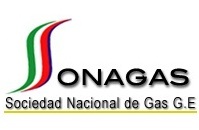The government of the Republic of Equatorial Guinea is firmly committed to strengthening its support and guarantees for the private sector, as it sees this as the essential framework for the country’s economic rise. As part of our commitment to the development programmes in place, we would like to remind you of the benefits available for you to best carry out your business.
Based on the spirit and criteria defined in the Common Investment Code of the Customs and Economic Union of Central Africa (UDEAC) and the experience built up in implementing Decree-Law 10/1979 of 17 November on Foreign Capital Investment and Decree-Law 7/1985 of 1 June on the Special Framework for Investment in Equatorial Guinea, in the current situation economic measures should be taken to encourage and promote private sector business.
Article 7 of the Foreign Capital Investment in the Republic of Equatorial Guinea Act states:
With the exception of the exclusions stated in the negative list in force, as set forth in Article 5, companies whose projects have been approved in accordance with this act will automatically benefit from the following incentives:
1. For the creation of new jobs, companies will benefit from reductions in their taxable base for income tax at an amount equivalent to 50% of the salaries paid to national employees. The percentage set in this paragraph shall remain in force and unmodified for eighteen years.
2. For the training of national staff, companies will benefit from a reduction in their taxable base for income tax at an amount equivalent to 200% of the non-salary cost of training the company’s national employees.
3. For the promotion of non-traditional exports, companies will receive a credit certificate that may be used to pay any tax and/or customs obligation equivalent to 15% of the amounts received in a commercial bank on account of the company for its non-traditional exports, following presentation of the export certificate and bringing the resources arising therefrom into the country, the Ministry of the Economy and Trade will issue a credit certificate to the beneficiary company, which may be endorsed in favour of third parties, at the amount of the incentive. The percentage stated in this paragraph shall remain in force and unmodified for eighteen years.
Companies whose projects are approved in accordance with this act shall be exempt from:
1. Any prior licensing requirement for import or export.
2. Any “ad hoc” duty on imports or exports levied through provisions without force of law.
Whenever necessary, the Ministry of Planning will certify the products that may be imported or exported without a licence and free of the “ad hoc” duties stated in paragraph 2 of Article 9 of the Foreign Capital Investment in the Republic of Equatorial Guinea Act.
•Article 12. In accordance with its obligations under Public International Law, the State is committed to fair and equitable work for all investors in national territory. Consequently, the State will not expropriate or interfere with the enjoyment of their rights nor breach contractual obligations undertaken with them, unless it is acting in the public interest and pays just and adequate compensation in a freely convertible currency.
Foreign employees of companies that carry out projects approved by this act and their dependants will enjoy all of the rights and protections agreed in international law in Equatorial Guinea.
Foreign investors that invest in projects approved under this act will be authorised to convert the company’s net profits paid to them in the form of dividends into foreign currency and transfer them abroad.
Article 14. Any dispute that arises between the Government of the Republic of Equatorial Guinea and a foreign investor in a company whose project is approved under this act shall be settled, insofar as possible, through direct negotiations between the parties. If such a dispute cannot be resolved by mutual agreement within a period of three months following the date on which the holding of such negotiations is requested, the dispute shall be submitted to the country’s courts and tribunals; if one of the parties disagrees, after domestic appeals have been exhausted the dispute may be submitted to an arbitration court. It shall be established and operate in accordance with one of the following forms, as chosen by the claimant:
1. Treaties concerning the protection of investments entered into by the Republic of Equatorial Guinea and the State of which the foreign investor is a subject.
2. A conciliation or arbitration agreement reached by the parties.
3. The Convention of 18 March 1965 on the Settlement of Investment Disputes between States and Nationals of Other States.
4. The “Supplementary Mechanism” approved on 27 September 1978 by the Administrative Council of the International Centre for Settlement of Investment Disputes that applies to cases in which one of the parties does not meet the jurisdictional requirements of the convention mentioned in the previous paragraph.
The Government of the Republic of Equatorial Guinea undertakes, by virtue of this act, to submit to the jurisdiction of any arbitration court set up in accordance with this article.
• N.B.: Please contact the Ministry of Planning and Economic Development of the Republic of Equatorial Guinea for further information about this Foreign Capital Investment Act.





